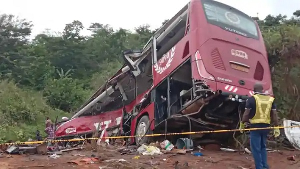KUSANABA Senior High School, a deprived school in the Bawku West District of the Upper East Region, is in a deplorable state, making teaching and learning difficult.
The school lacks a number of educational facilities, including accommodation for students and teachers, dining hall, potable drinking water, and transport.
Since its transformation from middle school into a senior high, the school has not seen any meaningful development, yet it has been operating as a high school in the area since its inception.
As a result of the lack of infrastructure, classrooms and old structures have been turned into dormitories for a population of 960 students.
Mr Cletus Stephen Atugiba, headmaster of the school, in an interview with the Ghana News Agency (GNA) at Kusanaba, said due to the school's inability to develop its lands, encroachers had taken almost all the lands belonging to the school.
He disclosed that the school has only four staff bungalows which accommodate eight staff members, out of 40, including the headmaster, and this has compelled most of the teachers to stay far away from the school, thus impeding academic work.
He said the school is an agriculture-oriented school but has no equipment, such as tractors, laboratory, and farm implements, for practical works.
The headmaster called on the education ministry to expedite action on the development of the school since education is the bedrock of national development.
Mr Atugiba noted that as part efforts to promote teacher-student relationship, there is the need for teachers to respect the rights of their students in order to achieve their intended aim.
He pointed out that contemporary education was losing its value as a result of the instability of the educational reforms, and said it was necessary for politicians to stand aside and allow educational policymakers to propound objective decisions for the sector.
He called on parents to take the education of their wards seriously by monitoring and supervising their studies.
Regional News of Saturday, 15 February 2014
Source: The Finder
















